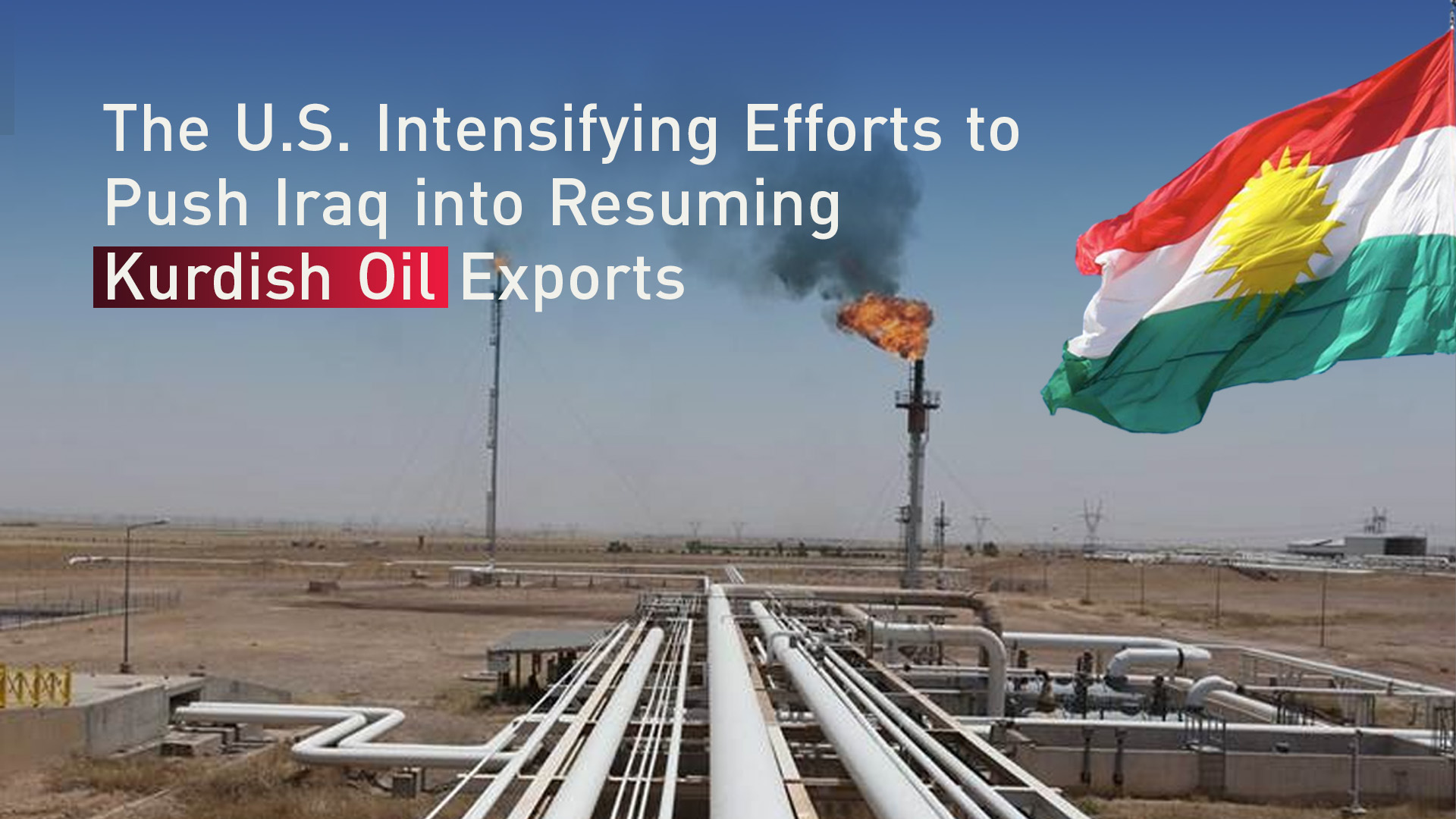U.S. Pressures Iraq to Resume Kurdish Oil Exports Amid Sanctions on Iran
A resumption of Kurdish oil exports, which have been halted since 2023, could help balance global oil markets, especially amid Washington’s renewed "maximum pressure" campaign against Tehran.

ERBIL (Kurdistan24) – The United States is intensifying its efforts to push Iraq into resuming Kurdish oil exports, warning Baghdad that failure to do so could result in sanctions, sources familiar with the matter told Reuters.
This move is seen as part of Washington’s broader strategy to limit Iran’s oil revenues and curb its influence in Iraq and the region.
U.S. Leverage on Baghdad
The pressure from the U.S. comes as President Donald Trump's administration seeks to counter Iran’s oil exports by increasing global supply from alternative sources, including the Kurdistan Region.
A resumption of Kurdish oil exports, which have been halted since 2023, could help balance global oil markets, especially amid Washington’s renewed "maximum pressure" campaign against Tehran.
Earlier this month, the Iraqi Parliament has approved a critical amendment to the federal budget law, paving the way for the resumption of Kurdistan Region’s oil exports.
Read More: Iraqi Parliament Approves Budget Amendment, Clearing Path for Kurdistan Oil Exports
The session, held on Sunday, Feb. 2, saw 176 members in attendance, with a majority vote securing the amendment’s passage, particularly tackling Article 12, which regulates oil export agreements between Erbil and Baghdad.
In a statement released on Monday, Hayan Abdulghani, Iraq's Minister of Oil, confirmed that no obstacles remain to the resumption of oil exports from the Kurdistan Region.
He assured that within a few weeks, all measures for restarting the oil export process from the Kurdistan Region will be completed. The announcement comes as officials from Iraq’s Ministry of Oil prepare to visit Erbil to finalize the details of the plan.
The decision follows mounting pressure from Washington, which has made it clear that Baghdad must ensure Kurdish crude reaches international markets.
Geopolitical Ramifications
Iraq finds itself in a precarious position, balancing its relations with both the U.S. and Iran. While Iran wields significant influence over Iraq through powerful Shia militias and political allies, Washington has ramped up diplomatic and financial measures to curb Iranian influence.
Reuters wrote that Iraq’s central bank blocked several private banks last week from accessing U.S. dollars at the request of the U.S. Treasury.
The renewed American focus on Iraq coincides with a weakening of Iran’s regional standing following Israeli strikes on its proxy groups. Washington appears keen to capitalize on this shift by pushing Baghdad into compliance with its oil and financial restrictions on Tehran.
Hurdles to Resumption
Despite Iraq’s announcement of the resumption of Kurdish oil exports, logistical and financial challenges remain unresolved.
Key issues include ongoing disputes over payment mechanisms between the Iraqi federal government and the Kurdistan Regional Government (KRG), as well as concerns from international oil companies over their compensation for past and future oil deliveries.
Executives from Norwegian energy firm DNO have voiced concerns over how they will be paid for future exports and how they will recover the $300 million owed for previous shipments before the pipeline closure.
Turkey, which plays a crucial role in the export route, has also yet to receive concrete details from Iraq regarding the resumption timeline.
Additionally, the reintroduction of Kurdish oil to global markets could create tension within OPEC+, as Iraq has been under pressure to comply with its pledged production cuts. Analysts suggest that while Kurdish crude may return to markets, Iraq is unlikely to exceed its OPEC+ production quotas.
Future Implications
While the U.S. is pushing for an expedited resolution, the technical and political hurdles mean that a swift restart is uncertain.
The success of these negotiations will depend on Baghdad’s ability to manage competing pressures from Washington, Tehran, and internal factions within Iraq.
According to Reuters, the broader impact on global oil markets will be limited, as Iraq is bound by OPEC+ agreements.
However, as Reuters highlighted, the return of Kurdish exports could provide some relief to energy markets, particularly in the wake of disruptions elsewhere, such as the recent Ukrainian drone attack on a major Russian pipeline.
As negotiations continue, all eyes remain on Iraq’s next steps, with potential implications for its political stability and economic trajectory.
